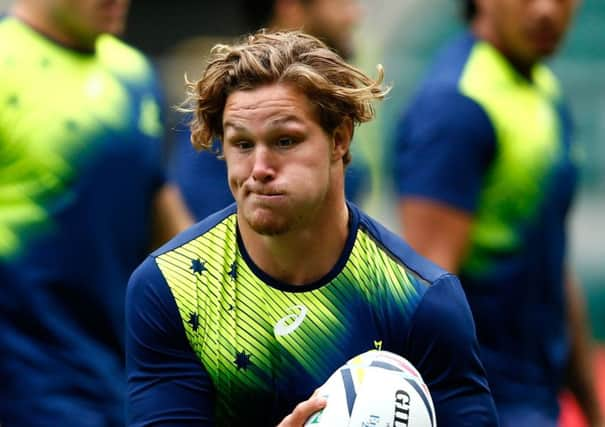Allan Massie: Losing sight of the purpose of citing


We, of course, are aggrieved by the suspensions meted out to Ross Ford and Jonny Gray. It was reported that Jaco Peyper, who refereed the Scotland-Samoa game, told the judge that he saw nothing wrong in the incident for which they were cited, but his evidence was discounted because the trial was interested in facts, not opinion. This is nonsense. The referee’s view that there was nothing illegal in what he saw is itself a fact and, as such, evidence in favour of the accused. So the opinion of the man on the spot is to be disregarded; the opinion of the citing commissioner seated before a TV set upheld, even when the referee has seen the incident and found nothing amiss. Citing was introduced to pick up misdemeanours the referee hasn’t seen, not, I think, to override his judgment of what he has seen.
The Laws of Rugby Union say that the referee is the sole judge of fact and law during the game. Now judges off the field make the referee – and this Law – look silly after the game. Incidentally, the TMO also apparently saw nothing wrong in what Gray and Ford were doing.
Advertisement
Hide AdAdvertisement
Hide AdScotland’s chance of beating Australia was slim before two of our best forwards were suspended. It is obviously slimmer now. Australia have looked at least as good as any other team in the Cup. Michael Hooper, missing against Wales, is back after a one-week suspension for an act of foul play against England, while David Pocock has escaped punishment for kneeing the Welsh hooker Scott Baldwin, although injury will keep Pocock out tomorrow. He and Hooper were outstanding against England. Nevertheless, injury-depleted Wales had the better of Australia for a good part of the game last week and, with cooler heads, might have won. England, badly-outplayed for an hour, got themselves back into their Australian game, before indiscipline set in and cost them points. Fiji made several line-breaks against Australia. All this offers us more than a glimmer of hope.
Hope springs eternal. You can’t have followed Scotland over the years without a good dose of hope, even though grim reality usually bites back. To win tomorrow we’ll have to do a lot of things much better than in the World Cup to date. We’ll have to start better. If we don’t, Australia might be out of sight after 20 minutes. There have been too many lapses of concentration, especially at restarts. As Simon Taylor has remarked, if we had secured the Samoan kick-off and restarts, we would have been in very little trouble last week. We have to scrum well and protect our ball at the breakdown against Hooper. Do all these things and you never know. Fail in any of them and it is good-bye. The key words must be concentrate, concentrate, concentrate. In Tom English’s fascinating new oral history of Irish rugby, the great centre, Mike Gibson, remarks that most mistakes on the field come from a momentary lapse in concentration.
Anyway here we are at the quarter-finals and it may be a bad weekend for the northern hemisphere. Each match is North v South. Ireland may just be favourites to beat Argentina, but injuries to Paul O’Connell, Peter O’Mahony, and Johnny Sexton, coupled with the one-week suspension of Sean O’Brien, must weaken them. Against France last week they played better than any other team in the tournament to date. At full strength, one might back them to go all the way. But for a weakened side, beating Argentina is a tough proposition. There is a suggestion that Ireland may pick Sexton even if he is not 100 per cent. That would be a gamble and I don’t think Joe Schmidt is a gambling man. Wales, of course, have had players falling like autumn leaves and come up against a Springbok team growing in confidence and authority. France looked curiously slow and unimaginative against Ireland last week. On that form they would have no chance against New Zealand.
Still, they have this going for them: they are the only northern side not in awe of the All Blacks. Their heroic captain Thierry Dusautoir must believe he has a score to settle. But for timid refereeing, France would probably have beaten New Zealand in the 2011 final.
Gloomily, one may predict that all four northern teams will lose. This would make the semi-finals and finals much less interesting. Of course, there would still be high quality rugby and exciting matches but what we would have would be the southern hemisphere’s own Rugby Championship translated to the North.
So we need some upsets: Ireland and Wales rising above their misfortunes, France summoning up the spirit of their 1999 and 2007 World Cup defeats of the All Blacks, Scotland taking their Australian opponents by the throat – metaphorically speaking, of course. Even so, any of the northern teams is going to need a bit of luck to proceed to the semi-finals. Perhaps we’re due it.